Toyah - Interview
by John Clarkson
published: 7 / 10 / 2012
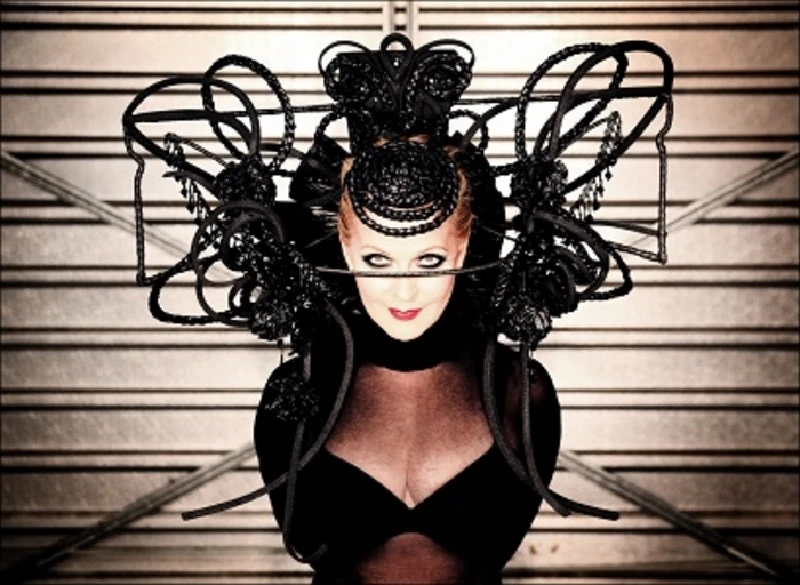
intro
John Clarkson chats to 80's icon Toyah Willcox about her 1982 album ‘The Changeling’, which she is presently touring with despite never having played the majority of its songs live before, and the forthcoming third album of her art rock/electro trio, the Humans
With her fiery hair and soaring, near operatic vocals, Toyah Willcox was one of the most striking and iconic singers of the early 1980s. Willcox, who was brought up in Birmingham, first came to prominence as an actress, appearing in Derek Jarman’s 1978’s punk epic ‘Jubilee’and the Who-inspired ‘Quadrophenia’(1979), and also acting alongside Katherine Hepburn in the made-for-TV film ‘The Corn is Green’. By 1980 her musical career, which she had run concurrently with her acting career, had also begun to take off. With her band which was also called Toyah, she released five studio albums, ‘Sheep Farming in Barnet’ (1980), ‘The Blue Meaning’(1981), ‘Anthem’(1981), ‘The Changeling’(1982) and ‘Love is the Law’(1983). She also had seven Top 40 single hits, including in 1981, her most successful year, three Top 10 hits alone with ‘Four from Toyah’, ‘I Want to Be Free’ and ‘Thunder in the Mountains’. Since Toyah folded in 1983, Toyah Willcox, who has been married to ex- King Crimson guitarist Robert Fripp since 1986, has gone on to release another ten studio albums under her own name. Ever prolific and busy, she has also appeared in several other films, dozens of TV dramas and over 40 theatre productions; worked as a presenter on programmes as diverse as ‘Songs of Praise’ and ‘The Good Sex Guide Late’; been one of the participants on ‘I’m a Celebrity Get Me Out of Here’, and also published two autobiographies, ‘Living Out Loud’ (2000) and ‘Diary of a Facelift’ (2005). Willcox also fronts an art rock/electro trio, the Humans, which began life in Estonia in 2007 and have since gone on to release two albums, ‘We are the Humans’ (2009) and ‘Sugar Rush’ (2011). Toyah Willcox has spent some of this year in Seattle, working on a third as-yet-untitled Humans album, which will come out next year. She has also been doing a thirtieth anniversary tour of ‘The Changeling’, the darkest of the Toyah albums, which she never toured with at the time and the majority of its songs she has never played live until now. A first set of shows took place under the moniker of ‘The Changeling Resurrection II’ in April, and there will be further dates throughout October and in early November. Pennyblackmusic spoke to Toyah Willcox about ‘The Changeling’, and also the new Humans record. PB: ‘The Changeling’ is an album that has divided critics and fans, more perhaps than any other album of yours had done before or since. How do you feel returning to these songs thirty years on and do you feel that they stand up now? TW: I feel that they stand up really well. I have never really felt able to face them at a personal level during the last thirty years. It was an album that was unexpected in its bleakness, as it followed ‘Anthem’ which was a very up, positive album. Back in 1980/81 you had to deliver two albums and four singles a year and tour at least three or four times a year, which was a kind of weird place to be in because you could never really fulfil anything 100%. I remember at the same time I was also doing about fourteen interviews a day, so by the time I came to write ‘The Changeling’ I was feeling pretty burnt out, and so I just thought I am going to be truthful here. I am just going to write how I feel, and I felt really bleak at the time. It was the beginning of 1982, and the Falklands War was also brewing, and it broke out while we were recording. My brother was in the RAF and on call. He had left the RAF in the 1970s, but was on call to go out and fight in the Falklands because of his training. We never expected a war again in our lifetime. It was the first feeling I had experienced of being completely out of control of the country you live in. You realised that you had no control on the decisions that it made, and so with ‘The Changeling’ I made no effort to be positive at all (Laughs). It was one of the most horrible times in my life, and ‘The Changeling’ really reflects that. Like so many albums that reflect a downward emotional curve, it came out at a time in which a lot of people were feeling the same. A lot of the fans identified with it at the time, and I think that it also won me new fans as well. PB: In another interview you said that you “should have had another six months to address the album.” Do you feel that in hindsight that in some ways it worked to your benefit, that because you had to go into the studio and to both write and record it that it had an urgency that it might otherwise not have had? TW: It is a double-edged sword. If someone said to me now, “You have got the time and the finances to demo before you release an album,” I would definitely go for that, because it gives you the time to iron out and rewrite things lyrically, and to have the courage to drop original ideas and to recreate them. It wasn’t, however, a luxury that I was able to look at back then. In hindsight I have no regret about the songs on the album though. Steve Lillywhite did a fantastic production job. There were some really interesting material and statements within that album. It is really representative of 1982, so even though in the years following its release I was uncomfortable with it I can now thirty years on be detached enough from it to say that actually it was right for the time. Having already been out on the road on the first half of the tour performing it, what it does to me now when I am singing it is that completely lifts me. I am in the middle of singing a song like ‘Dawn Chorus’, for example, and I can actually think, “This is fantastic to sing.” PB: Very few of the songs you actually performed live at the time or subsequently since. How many of the songs are on the set list on the current tour? TW: We are performing eight songs if you include ‘Voodoo Doll’, which was on the back of the ‘Thunder in the Mountains’ single. We will be playing for about an hour and a quarter, an hour and a half most nights, and ‘The Changeling’ will be at least forty five to fifty minutes of the set. PB: Why did you decide to call the album ‘The Changeling’? TW: It was just that idea of feeling out of place and not part of what was going on. When you feel so powerless to stop something happening, those feelings of alienation just increase. I decided to call it ‘The Changeling’ because of the idea of the changeling in fairy folklore, which is that of a human being which is swapped for something of supernatural presence and status. I think there is both hope and disillusionment and alienation in that album title. PB: ‘Creepy Room’, the opening track, seems to be about being punished for doing nothing but being yourself. At the time that album was released you were at the height of your popularity. At the same time, as with anyone in that situation who has become really popular, there were a lot of negative and unpleasant things being written and said about you. How much of that song was written in defiance to your critics? TW: It wasn’t written in defiance to critics because I don’t read critics. I wrote it because I felt that everyone looked on me as a kind of loose cannon (Laughs). That was how I felt when I looked out on the world because I felt my opinions were so out of place. It wasn’t just the critics. It was how I felt about how I fitted into the world and how I had always felt. PB: To take this point further, there has always been a total lack of pretence about you, and that is something that you have continued to always have whether appearing on ‘I’m a Celebrity, Get Me Out of Here’ or ‘Loose Women’, or publishing your book about having had a facelift. Have there ever been occasions in which you wish that you had perhaps been a bit less open? TW: What makes me very sad is that I have always been very honest in the hope that people will accept things and then let them go. People will, however, only talk about things that will titillate. What I was really saying, for example, with ‘Diary of a Facelift’ is that amongst men and women alike facelifts are really common, and we need to treat them and talk about them as something common and not some kind of scandalous titillation. Now I think amongst Joe Public, Joe Public sees it as a norm, and I think what disappoints me is that I published a book of complete honesty and that even now seven years on people still feel the need to poke fun at it and do feature spreads about it. In a way I actually regret doing the book now because it didn’t do anything about narrow-mindedness at all, and for which honesty didn’t pay off in the end. PB: It could be argued, however, that for a lot of people who were thinking about having or who had had a face lift ‘Diary of a Facelift’ was some comfort. TW: Oh God, yeah! I still get people coming up to me in the street and thanking me for the book. The whole reason I wrote the book was because I can’t bear people who lie about their perfection. I can’t stand it. It makes me absolutely fucking mad. You know that they are either thin because they are on drugs or because they have had surgery, and I think that it completely wrong when you see women on the streets who are trying to keep up an image that they have seen in magazines thinking that it is a natural image. They spend money. They see cowboys. People need to know who the best is. They are playing with their lives, and so on that level anyway at least I am glad that I did the book. I also knew that ‘The Daily Mail’ would out me. I just thought that through that I would get there before they did. ‘Diary of a Facelift’ was written on many levels really. PB: You went straight back into acting as soon you had recorded ‘The Changeling’. You did the theatre play ‘Trafford Tanzi’ in which you played a female wrestler, and then were in ‘The Ebony Tower’, the television play with Laurence Olivier. Was that just coincidence? TW: No, I needed to shift because being in music can be a very claustrophobic place to be. The majority of what you do in the music industry is not what you see on stage. It is dealing with promotion, management and numerous account meetings, and it can be the most deadly dull place to be in the world. If it was purely being creative and singing live and making videos, then it would be an absolutely fantastic place to be, but the majority of the time you are just keeping tabs on things are involved in contract and legal meetings. I needed to get away from that because I had just got to the point where I couldn’t write a song without having resentments in my head about all the other things that I had to do before I could be creative. To move into acting was like a refresher course. It helped me to start loving music again. PB: ‘The Changeling’ is an album that involves a lot of high notes and often very complex singing. Has that been difficult to maintain on stage? TW: Oh God, yeah! It is a very high octave performance. For the tour we have only put in three shows a week because I don’t want to go on stage and not be able to hit the notes that you need to do ‘Brave New World’. Singing has always involved for me that kind of maintenance. Over the last ten years I have deliberately dropped my octave range, so that I can do up to six shows a week but with ‘The Changeling’ I have not been able to do that. With my voice it is not possible. PB: You formed your band the Humans with Bill Reifin and Chris Wong. Who are they? TW: Chris Wong is the MD in Toyah. He is English-based, while Bill Reifin has been drumming for R.E.M. for the last ten years and before that he was in Ministry. He works with Swans as well. He is based in Seattle. PB: How did you come across Bill? TW: Bill is a friend of my husband Robert Fripp. The Humans were formed when the President of Estonia asked Robert to play at his birthday party and Robert wasn’t available, and so I phoned up the Embassy and said that I would do it. I said that I would put a band together, that we would write music especially for the President’s birthday, and come out and perform it. I was just being opportunist really which I am very good at, and the reply came back “Yes”, and so that was how we got together. It went down incredibly well. We did a short tour of Estonia which sold out and then went back to Seattle to record our debut album, ‘We are the Humans’. I wanted to form a band and create a form of music with the Humans which I could sing even though I am getting older. My voice is not going to remain the same forever. I am 54 now, so I wanted to create something that I could keep going into my 60s, which involved a little bit more narrative and which was gentler on the vocal chords, and which was also very visual. PB: How did you enjoy playing Estonia? TW: It was lovely. The thing about Estonia is that it is like being on a different planet. It is all forest, and is really in touch with its folklore. The audiences sit down and really listen to the words, and the music that you have set those words too. They are a completely different audience to anywhere else in the world. PB: With such a geographical distance, and everything else that you are involved with, how do you find the time to do the song writing both in the Humans and in your solo career? TW: I just get down and do it. I don’t procrastinate. I want to, but I just have just to get down and do it. It is never the same rule. I will use any method that it takes. Sometimes I will open a book and look at a random paragraph in in it, and write the first thing that comes into my head. Sometimes I will use GarageBand, and at other times I will pick up a guitar and strum a few chords. There is never any written law about how I get started, but the biggest rule is getting started. PB: The first Humans album ‘We are the Humans’ it was very experimental, and involved two bass guitars, no drums and using your voice as another instrument. The second album, ‘Sugar Rush’, was more cinematic. You have just recorded a third album which will come out next year. What does it sound like? TW. None of us can believe what has happened. We all sing on it, and, if I had to really pinpoint it, it is like the Mamas and the Papas meeting Metallica. It is absolutely fabulous. It is both radio-friendly and very funny. We were in a state of absolute euphoria when we recorded it. PB: Was it a difficult album to record because it was an album that was recorded really quickly,but which involves a lot of instrumentation? TW: Only in that we had so little time it was maddening. We recorded it in about ten days. Both Bill Reifin and Chris Wong play guitar, drums and bass on it. I have also done some percussion. We would have really loved another two weeks, but we are dealing with such a different business environment now. Record companies don’t sell the numbers that they used to. Music is geared up more for the internet and downloads. We are not going to spend a million pounds recording something when we know in reality what our sales figures are going to be, and that will have a larger audience playing live. PB: Will you be touring with the Humans? TW: Yes, we are planning to do something in the spring. PB: What else have you got planned for the future? TW: It is really hard to say. At the moment I am just diving head first into tour promotion for this year, so I can’t predict next year. We are, however, booked for a lot of festivals already. Next year we are going be tour ‘Love is the Law’, the album which came after ‘The Changeling’, but we are not going to do two tours of that, just one extended tour. PB: Thank you.
Picture Gallery:-
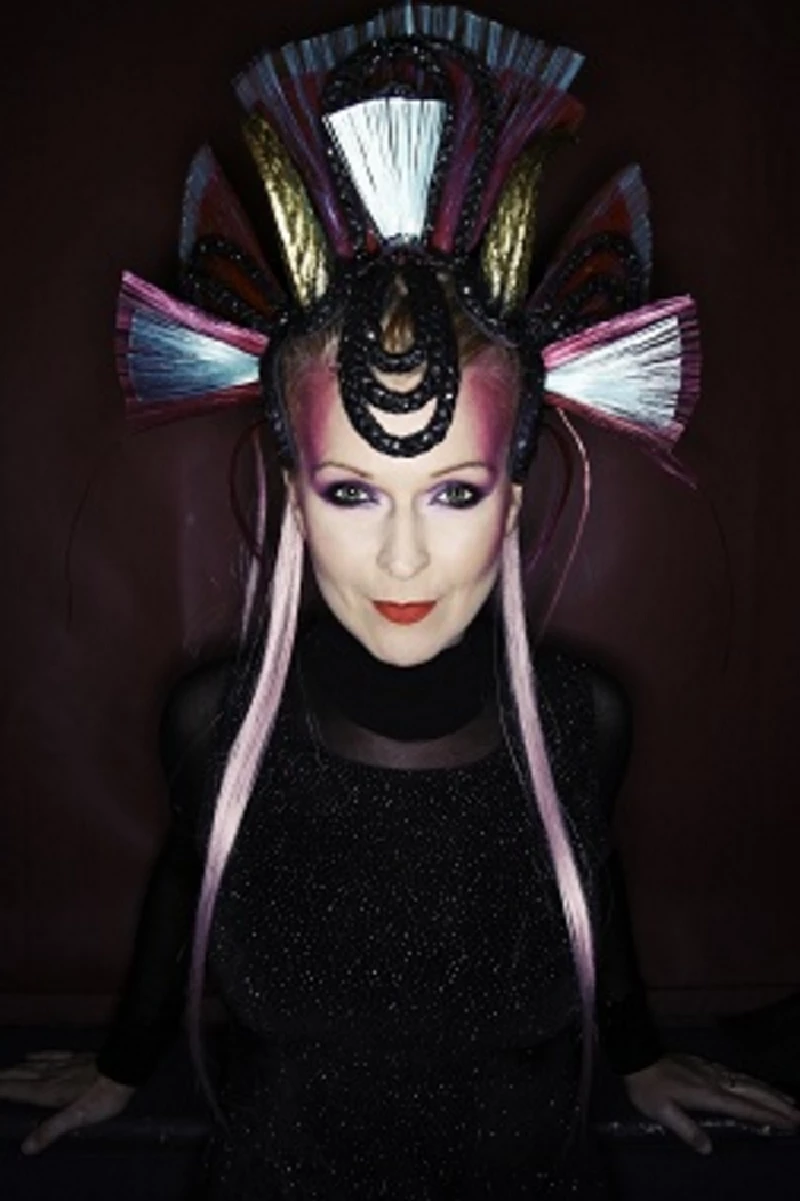
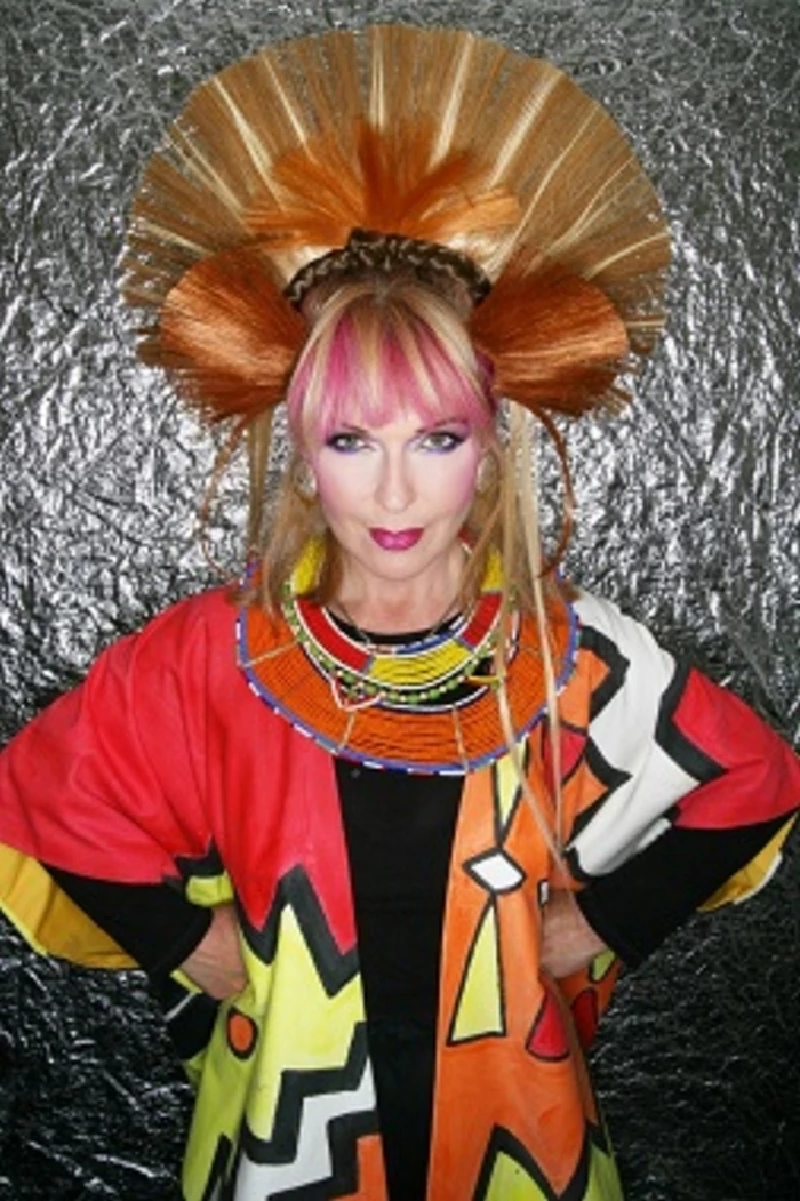
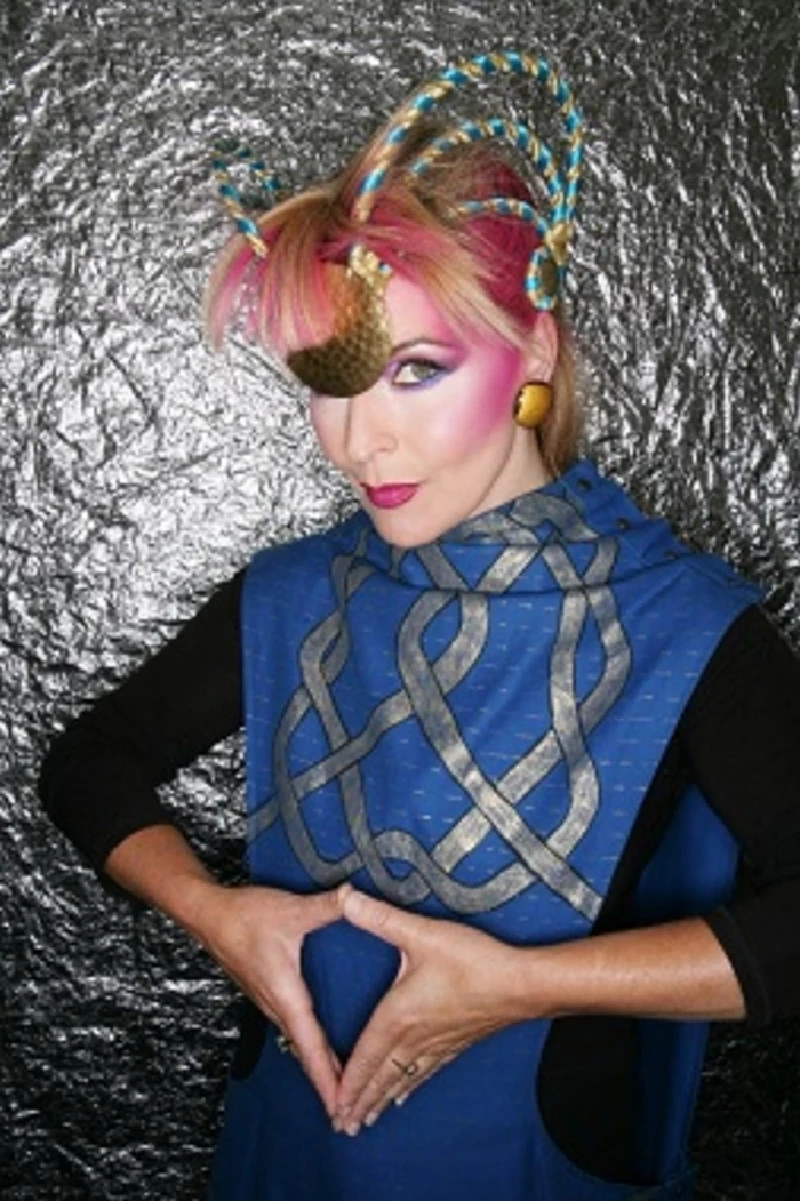
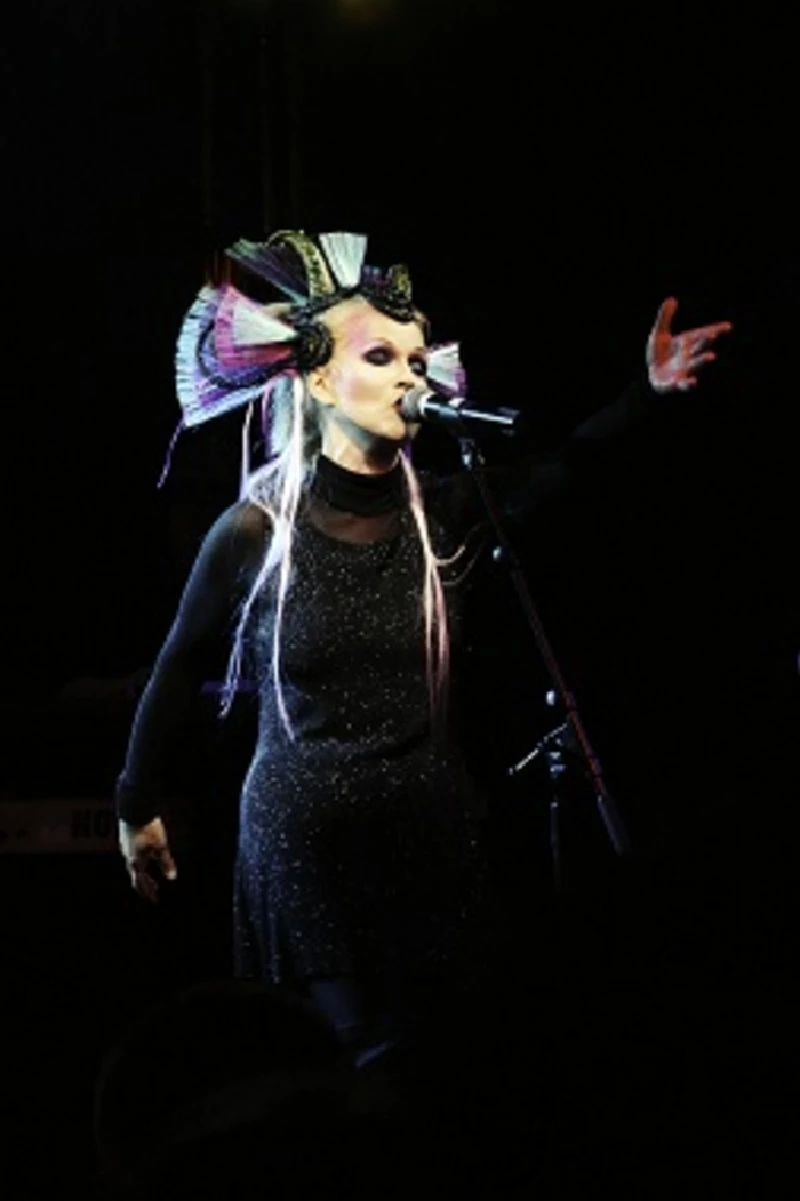
live reviews |
|
Academy 3, Manchester, 25/10/2014 |
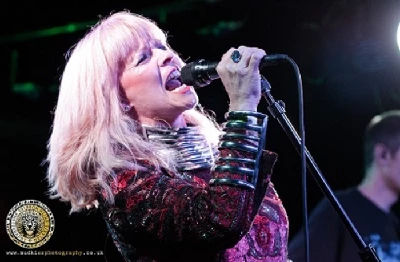
|
| Billy Seagrave watches 80's legend Toyah play a spectacular show at the Academy in Manchester |
most viewed articles
current edition
Carl Ewens - David Bowie 1964 to 1982 On Track: Every Album, Every SongBathers - Photoscapes 1
Armory Show - Interview with Richard Jobson
Colin Blunstone - Thalia Hall, Chicago, 16/7/2025
Visor Fest - Valencia, Spain, 26/9/2025...27/9/2025
John McKay - Interview
Editorial - July 2025
Sir Tim Rice - Interview
Billie Eilish - O2 Arena, London, 10/7/2025
Bathers - Photoscapes 2
previous editions
Heavenly - P.U.N.K. Girl EPOasis - Oasis, Earl's Court, London, 1995
Trudie Myerscough-Harris - Interview
Pixies - Ten Songs That Made Me Love...
Simon Heavisides - Destiny Stopped Screaming: The Life and Times of Adrian Borland
Beautiful South - Ten Songs That Made Me Love...
Prolapse - Interview
Blues and Gospel Train - Manchester, 7th May 1964
Boomtown Rats - Ten Songs That Made Me Love....
Doris Brendel - Interview
most viewed reviews
current edition
Amy Macdonald - Is This What You've Been Waiting For?Sick Man of Europe - The Sick Man of Europe
Alice Cooper - The Revenge of Alice Cooper
Phew, Erika Kobayashi,, Dieter Moebius - Radium Girls
Davey Woodward - Mumbo in the Jumbo
Lucy Spraggan - Other Sides of the Moon
Blueboy - 2
Cynthia Erivo - I Forgive You
Lapsley - I'm a Hurricane, I'm a Woman In Love
Philip Jeays - Victoria
related articles |
|
Fairport's Cropredy Convention: Profile (2015 |
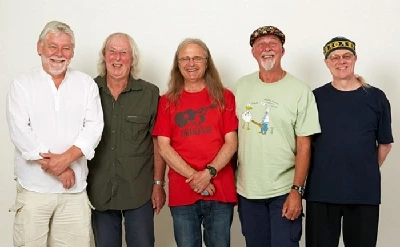
|
| Nick Dent-Robinson profiles Fairport's Cropredy Convention, which will be taking place on the 13th to the 15th August, and speaks to Emmylou Harris, Toyah Willcox, Pete Brown and Skinny Lister and also Fairport Convention bassist Dave Pegg, all of whom are appearing in this year's line-up |
| Toyah: Live Review (2014) |
Pennyblackmusic Regular Contributors
Adrian Janes
Amanda J. Window
Andrew Twambley
Anthony Dhanendran
Benjamin Howarth
Cila Warncke
Daniel Cressey
Darren Aston
Dastardly
Dave Goodwin
Denzil Watson
Dominic B. Simpson
Eoghan Lyng
Fiona Hutchings
Harry Sherriff
Helen Tipping
Jamie Rowland
John Clarkson
Julie Cruickshank
Kimberly Bright
Lisa Torem
Maarten Schiethart